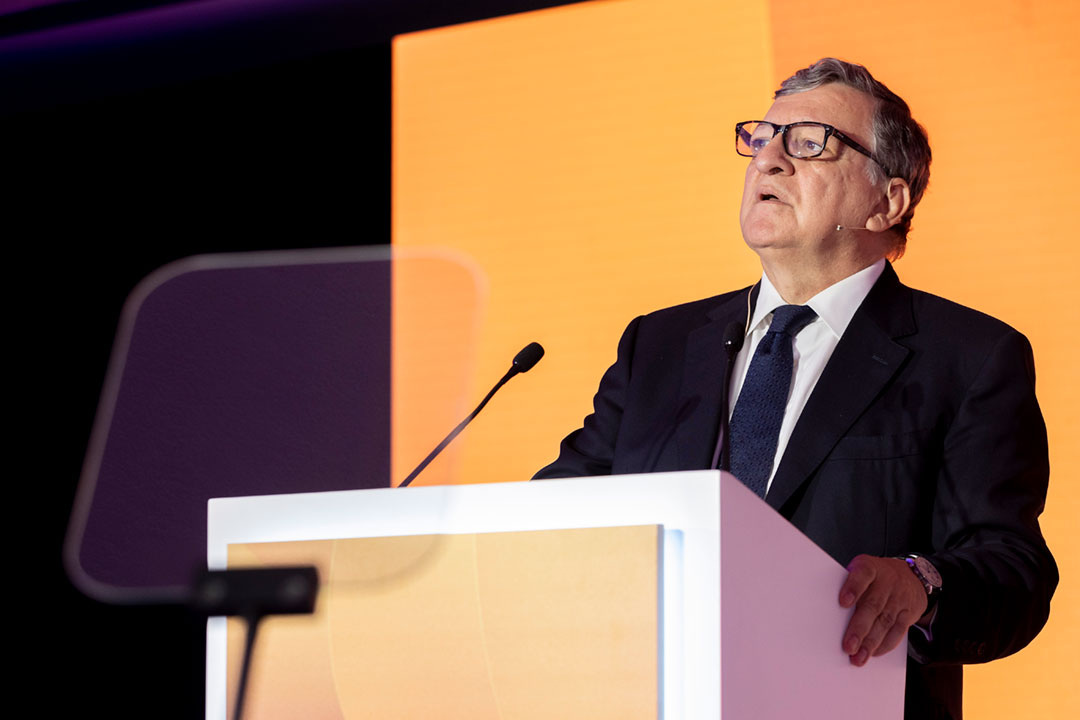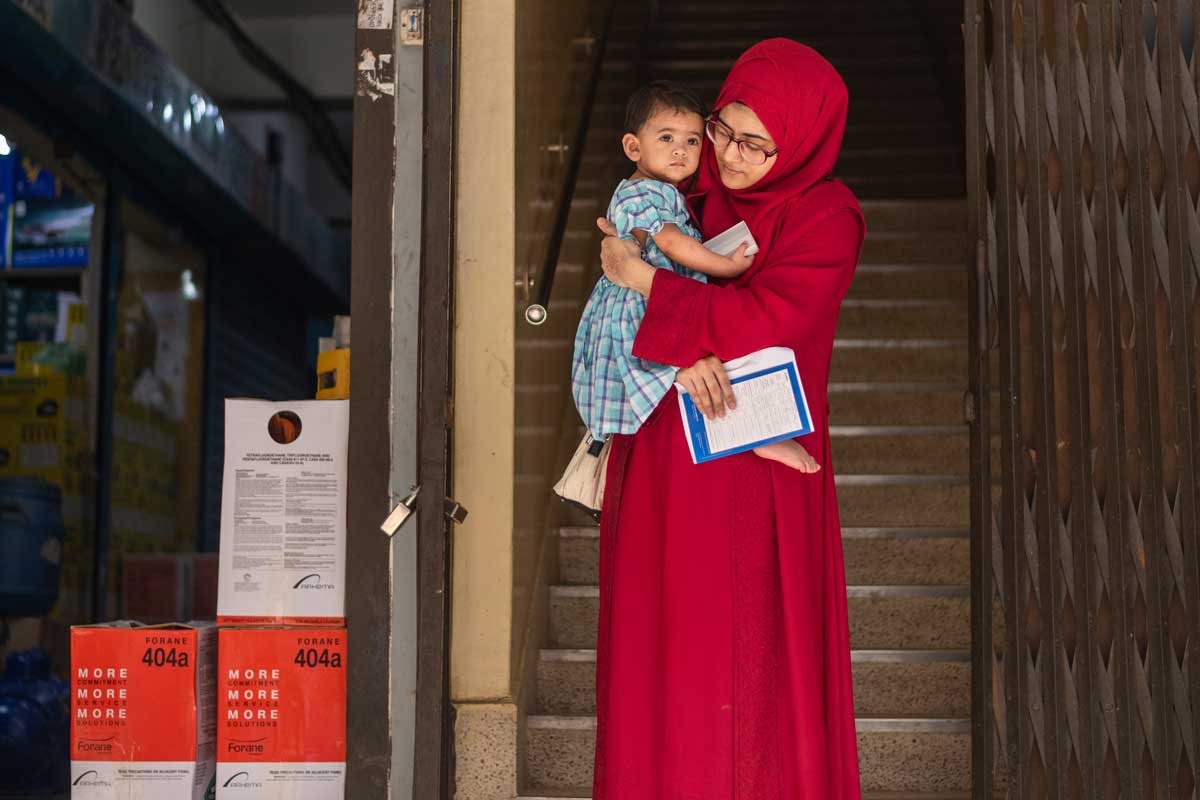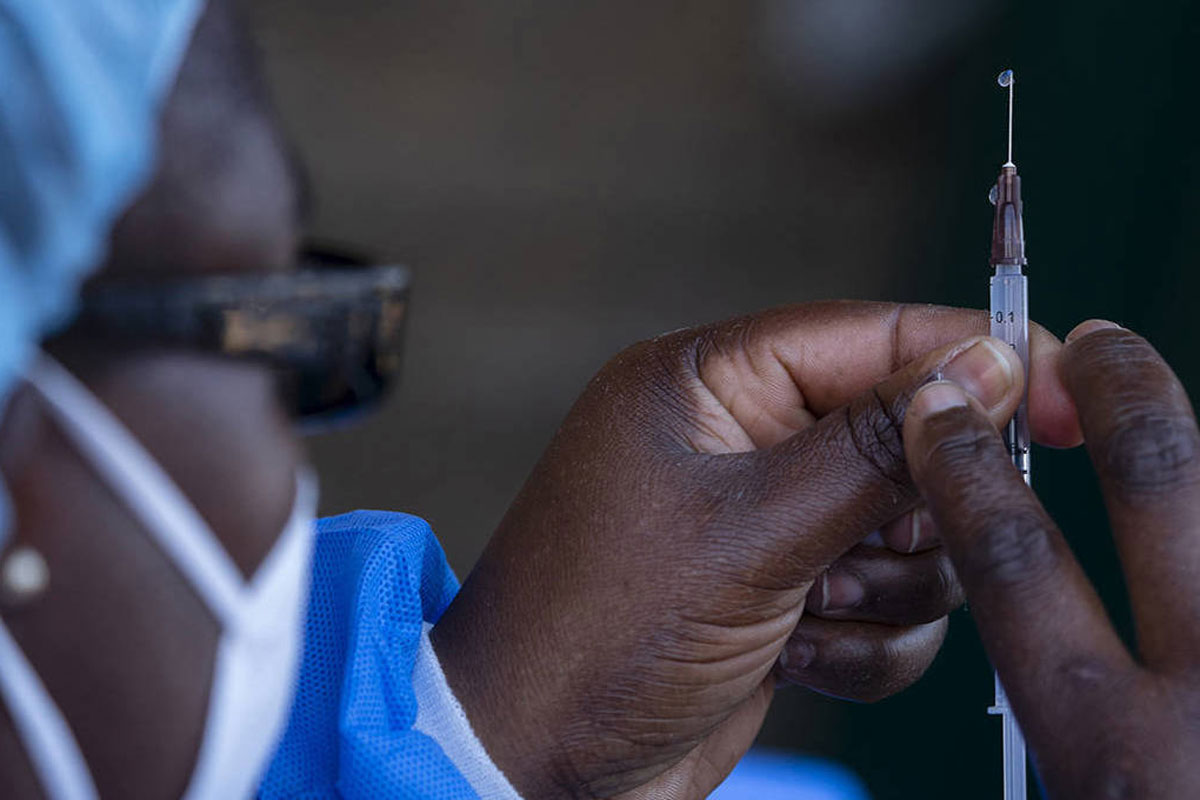“A Pivotal Year for the Vaccine Alliance”: A preview of what’s coming at this week’s Gavi Board meeting
Gavi’s Board, which brings together stakeholders from across the world of immunisation, will meet in Ghana this week. Its chair, Prof José Manuel Barroso, outlines the key issues that will be up for discussion and why.
- 4 December 2023
- 5 min read
- by José Manuel Barroso

As 2023 draws to a close, there is much to reflect upon. During 2023, Gavi, the Vaccine Alliance, announced it had passed the milestone of helping to immunise more than 1 billion children through routine programmes, as well as having delivered 1.8 billion more vaccinations through preventive campaigns.
With 2024 shaping up to be a pivotal year for the Vaccine Alliance as it formulates a strategy to take immunisation in lower-income countries through to the end of the decade, this week's deliberations will have a significant impact on the future of global health.
While Gavi-supported countries faced many setbacks in their routine childhood immunisation programmes as a result of the pandemic, we also saw in 2023 that coverage has begun to recover. At our Board meeting in Ghana, we will be taking stock of these efforts and deciding which activities and initiatives to prioritise in 2024. Here are some of the key topics that we will be discussing:
1. Big Catch-up
With more than 25 million children missing at least one vaccination in 2021 alone as a result of the pandemic, "The Big Catch-up" initiative was launched in 2023. It is a targeted global effort to reverse these declines and prevent outbreaks from preventable diseases including measles, diphtheria, polio and yellow fever, which are already becoming more prevalent and severe as a result.
With considerable progress still needed before we can say that the world has turned the corner and restored vaccination levels to 2019 and beyond, the Board will be considering funding additional doses, as well as providing technical support to countries to turn vaccines into vaccinations.
2. Strengthening African manufacturing
Demand for vaccines in Africa accounts for roughly US$1 billion each year, and yet the region only produces a tiny fraction of what it needs. This imbalance in the geographical distribution of vaccine manufacturing was a key factor behind the vaccine inequity we saw in 2021, where the vast majority of vaccines went to wealthy countries.
Enhancing Africa's capacity to make its own vaccines will not only safeguard the region against future pandemics, but it will also enable African countries to prioritise the development and manufacture of affordable vaccines for diseases that predominantly affect African populations, such as malaria.
Gavi has worked intensively with the African Union, Africa Centres for Disease Control, the Partnerships for African Vaccine Manufacturing and other key partners over the past two years to identify and design the market mechanisms and incentives needed to cultivate such a vibrant vaccine manufacturing ecosystem. The proposed African Vaccine Manufacturing Accelerator (AMVA) is the first concrete action towards these goals, aiming to make cash available to incentivise investment in African production over the next ten years. Gavi's Board will consider how best to support this effort.
3. Day Zero financing for pandemics
Another lesson from the pandemic was the need to rapidly mobilise funding so that lower-income countries could get access to life-saving vaccines to protect their most vulnerable populations as quickly as possible. Building on Gavi's expertise in innovative financing, a proposed Day Zero Pandemic Financing Facility for Vaccines (DZF) aims to ensure that around funds for response will be available from the outset in future pandemics.
Have you read?
One suggestion that the Board will consider is whether to use savings left over from the COVAX AMC Pandemic Vaccine Pool for this purpose, meaning no new fundraising effort would be required.
4. Meningitis vaccine roll-out
Since the introduction of a vaccine against Group A meningococcal bacteria, starting in 2010, the leading cause of epidemic meningitis has effectively been eliminated. However, even though meningitis cases have dramatically reduced, other strains of meningococcal bacteria are still triggering outbreaks, particularly in the region of sub-Saharan Africa known as the meningitis belt.
An affordable meningococcal vaccine against Groups A, C, W, X and Y (Men5CV) achieved WHO prequalification in July 2023, and in September, the WHO's Strategic Advisory Group of Experts on Immunization (SAGE) recommended that all countries in the African meningitis belt introduce it into their routine immunisation programmes. High-risk countries and those with high-risk districts should also conduct catch-up campaigns targeting all individuals aged 1 to 19 years, WHO said.
Doses of Men5CV are already available for emergencies through the Gavi-funded global stockpile of vaccines maintained to respond to outbreaks of meningitis A and other meningococcal disease strains. Gavi's Board will decide whether to approve funding to make roll-out of this vaccine routine.
5. Vaccine Investment Strategy
Every five years, Gavi outlines a Vaccine Investment Strategy (VIS) to determine which new and underused vaccines our Alliance should make available to lower-income countries during the next strategic period. At our Board meeting in June 2023, we approved a longlist of vaccines for potential investment, following consultations with stakeholders in Gavi-supported countries, civil society organisations, disease experts, technical partners and vaccine manufacturers: hepatitis E, dengue, mpox, COVID-19 routine, tuberculosis, Group B streptococcus, chikungunya and shigella.
The Board must now approve a final shortlist of vaccines to be developed into investment cases that will enable them to be compared against each other and existing portfolio vaccines. This will include further analysis of the procurement, operational and implementation costs for Gavi and countries, as well as delivery and health system costs. A final decision on which vaccines to support between 2026 and 2030 will be taken in June 2024.
With 2024 shaping up to be a pivotal year for the Vaccine Alliance as it formulates a strategy to take immunisation in lower-income countries through to the end of the decade, this week's deliberations will have a significant impact on the future of global health.








